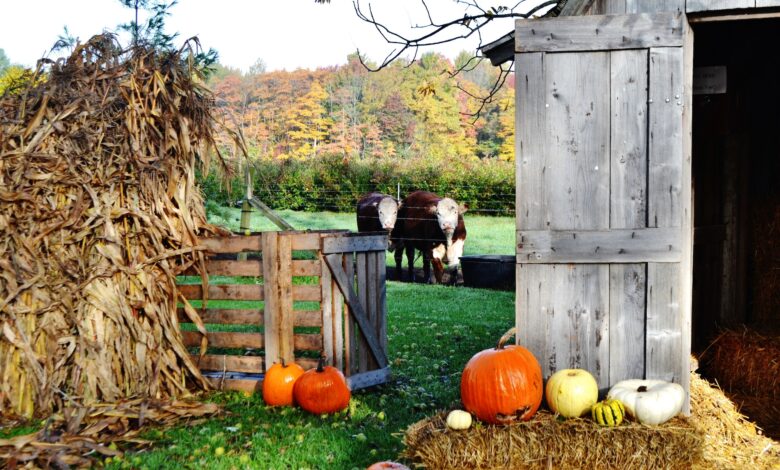
“Building Your Farming and Agriculture Vocabulary: A Beginner’s Guide for ESL Students”
Learning Farming and Agriculture Vocabulary: A Starting Point for ESL Students
Here’s a collection of words about farming and agriculture. It’s not everything you’ll need to know, but it’s a good beginning. We show you what type of word each one is. Then, there’s a sentence to help you understand how it’s used. If you don’t know a word, try using a dictionary to learn it. After that, you can try out the new words with some practice tips.
-
Capability to Enterprise
Capability – (noun) Our capability to cultivate crops has increased significantly this year.
Educational – (adjective) Having an educational background in agriculture is advantageous when working with livestock.
Activities – (noun) The activities during the planting season include preparing the soil and sowing seeds.
Impact – (verb) The drought has had a significant impact on the fruit harvest.
Agricultural – (adjective) Technological advancements have led to significant changes in agricultural practices.
Agriculture – (noun) Agriculture plays a vital role in supporting the economy of many rural communities.
National – (adjective) National policies affect how farmers manage their land and resources.
Animal – (noun) Cattle are essential animals on many farms.
Aquaculture – (noun) Aquaculture offers opportunities for cultivating aquatic species for food.
Aspect – (noun) One important aspect of organic farming is maintaining soil health.
-
Background to Care
Background – (noun) His family’s farming background influenced his decision to become an agronomist.
Bales – (noun) Load the bales of hay onto the truck for storage.
Injured – (adjective) If you’re injured while working, inform the supervisor immediately.
Breed – (noun) We raise a specific breed of sheep known for their wool quality.
Breeding – (noun) The breeding of poultry requires careful selection of parent birds.
Business – (noun) Our family’s business focuses on sustainable farming practices.
Attention – (noun) Pay attention to weather forecasts to plan planting and harvesting activities.
Cattle – (noun) Cattle farming requires proper management to ensure animal welfare.
Certification – (noun) Organic farms must undergo a certification process to verify their practices.
Chemicals – (noun) Avoid using harmful chemicals that can damage the soil and environment.
-
Clean to Develop
Clean – (adjective) Keep the barn clean to maintain a healthy environment for the animals.
Climate – (noun) Changes in the climate pattern can impact crop yields.
Frosty – (adjective) Frosty weather can harm sensitive plants.
Common – (adjective) Rotating crops is a common method to improve soil fertility.
Communication – (noun) Effective communication between farmers and buyers is essential for successful trade.
Computer – (noun) We use a computer to monitor irrigation systems on the farm.
Conditions – (noun) Ideal growing conditions include ample sunlight and adequate water.
Constantly – (adverb) Farmers are constantly learning about new sustainable practices.
Continue – (verb) Let’s continue planting until the sun goes down.
Contract – (noun) The contract outlines the terms of the partnership between the farm and the distributor.
-
Contrast to Fruit
Contrast – (noun/verb) We contrast traditional and modern farming methods to understand their impact.
Cooperative – (noun) The local farmer’s cooperative benefits from collective resources.
Corporation – (noun) Large corporations often dominate the agricultural industry.
Cow – (noun) The cow provides milk for our dairy products.
Credit – (noun) Seek financial advice before taking on credit to expand your farm.
Crop – (noun) This year’s wheat crop yielded a bumper harvest.
Customer – (noun) Providing quality products ensures customer satisfaction.
Dairy – (adjective) Our dairy farm produces fresh milk and cheese.
Decade – (noun) Over the past decade, sustainable farming has gained popularity.
Decline – (noun/verb) There has been a decline in the prices of certain crops.
-
Deliver to Equip
Deliver – (verb) We need to deliver the produce to the market before dawn.
Demands – (noun) Meeting consumer demands requires strategic planning.
Disease – (noun) Preventing the spread of disease is crucial for maintaining healthy livestock.
Driver’s – (adjective) Having a driver’s license is essential for operating farm vehicles.
Duties – (noun) Your duties include tending to the animals and maintaining the fields.
Egg – (noun) Collect eggs from the chicken coop every morning.
Environment – (noun) Protecting the environment is integral to sustainable farming practices.
Equipment – (noun) Modern equipment has streamlined various farming tasks.
Exposure – (noun) The south-facing field receives maximum exposure to sunlight.
Facilities – (noun) Our facilities include barns, storage areas, and processing units.
-
Farm to Landscape
Farm – (noun) Our family farm specializes in organic vegetable production.
Farmer – (noun) The farmer takes pride in producing high-quality crops.
Feed – (noun) Provide nutritious feed to keep the livestock healthy.
Fertilizer – (noun) Organic fertilizers enrich the soil with essential nutrients.
Fiber – (noun) Cotton is a valuable fiber crop used in textile production.
Fish – (noun) Fish farming, also known as aquaculture, is a growing industry.
Flower – (noun) The flower beds add a splash of color to the landscape.
Fruit – (noun) The apple trees are laden with ripe fruit.
Grazing – (noun) The cows spend their days grazing in the pasture.
Greenhouse – (noun) Tomatoes thrive in the controlled environment of the greenhouse.
-
Grown to Machinery
Grown – (adjective) These fully grown pumpkins are ready for harvest.
Handle – (noun/verb) Use the handle to open the gate and let the animals out.
Harvest – (noun/verb) The harvest season is a busy time on the farm.
Hay – (noun) Bales of hay are essential fodder for livestock during winter.
Hazardous – (adjective) Proper disposal of hazardous chemicals is vital for environmental safety.
Health – (noun) Regular health checks ensure the well-being of the animals.
Horse – (noun) A well-trained horse is indispensable for various farm tasks.
Horticulture – (noun) Horticulture involves cultivating ornamental plants and flowers.
Indoors – (adverb) Seedlings are nurtured indoors before being transplanted outside.
Knowledge – (noun) Acquiring knowledge about plant diseases helps prevent their spread.
-
Laborer to Produce
Laborer – (noun) We hire laborers during the harvest season to assist with manual tasks.
Land – (noun) Acquiring suitable land is essential for
Tips for Improving Your Vocabulary
- Practice in Sentences: Start by using each word in a sentence. Begin with speaking the sentences aloud. Then, write them down. Using new words in both speaking and writing can assist you in memorizing them effectively.
- Combine Words into Paragraphs: After crafting sentences, challenge yourself to create a paragraph incorporating the same words. This exercise helps you use the words more naturally in extended contexts.
- Explore Synonyms and Antonyms: Broaden your farming and agriculture vocabulary by discovering synonyms and antonyms. Online thesauruses are valuable tools for expanding your word choices.
- Visual Dictionary: Utilize a visual dictionary to learn the names of specific equipment used in the industry. Visual aids can make memorization easier and more enjoyable.
- Learn from Colleagues: Pay attention to how your co-workers use these words in their conversations. Observe the different ways they incorporate the vocabulary into their discussions.
- Clarify Usage: If you encounter unfamiliar usage of these words by your co-workers, ask them questions to better understand how the words are employed.
- Engage with Co-workers: Initiate conversations with your co-workers about the application of new words in the workplace. Discussing real-life scenarios enhances your practical understanding of the vocabulary.





